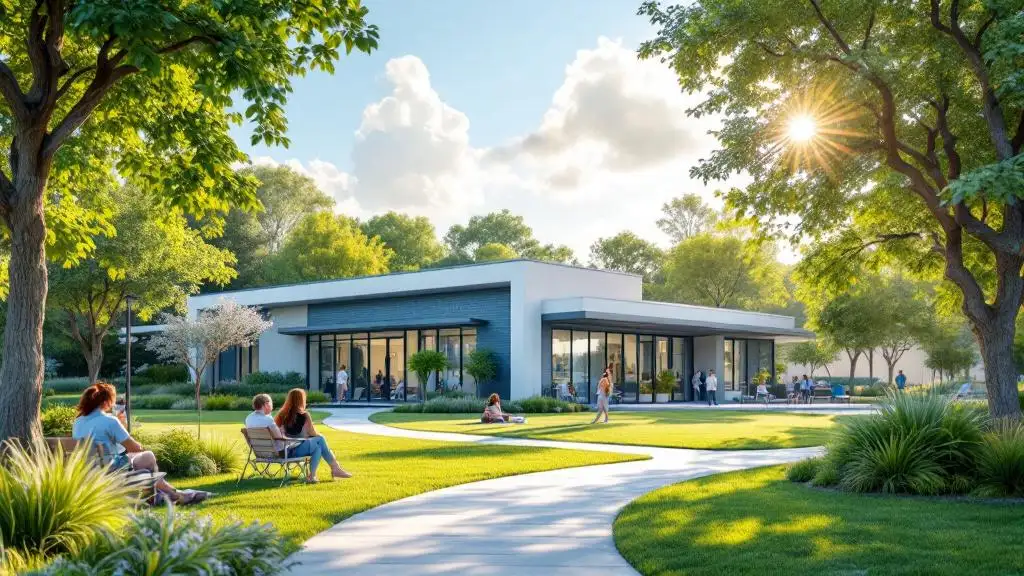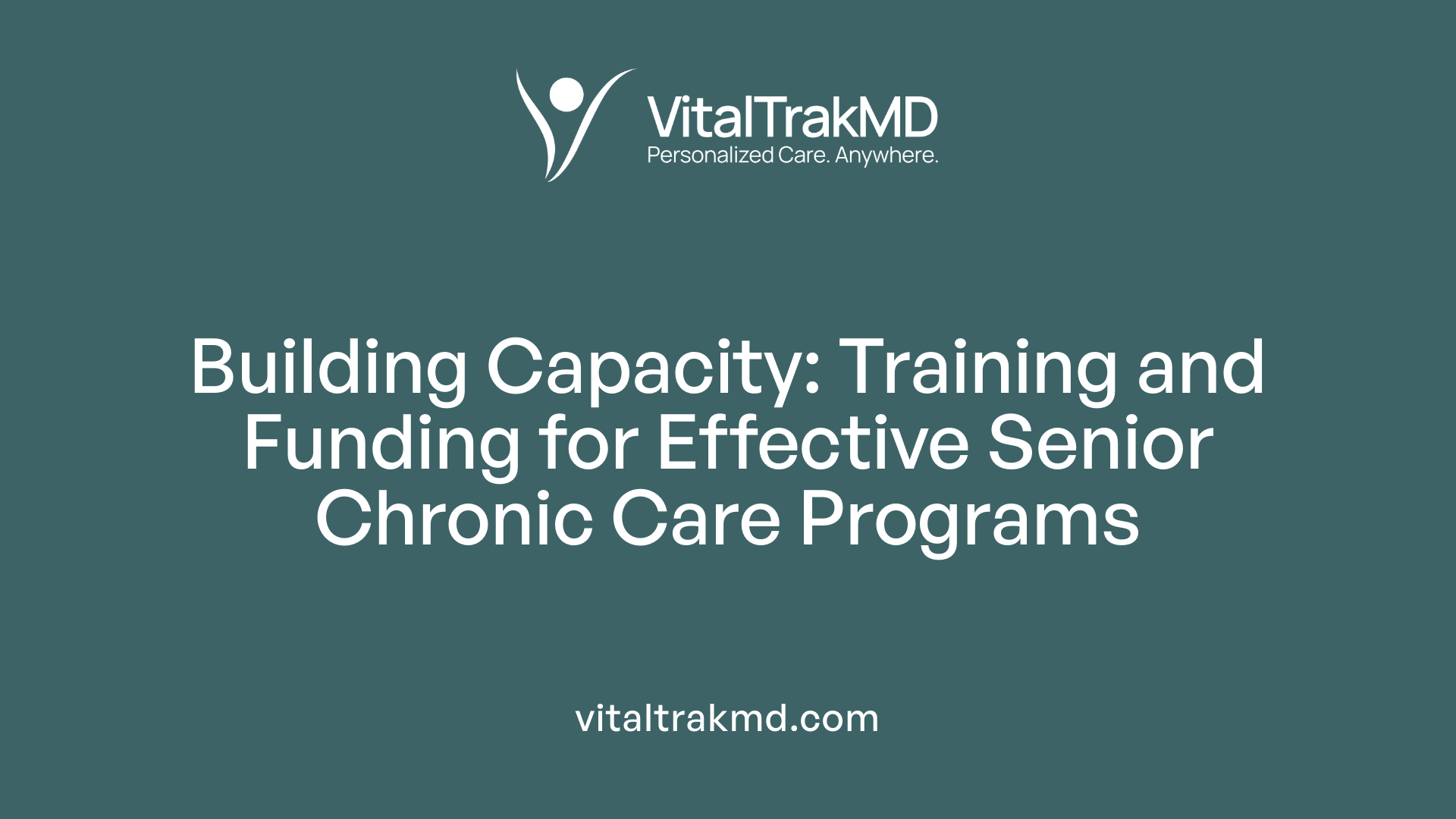Integrating Lifestyle Coaching Into Chronic Care for Seniors

The Rising Importance of Lifestyle Coaching in Elderly Care
As the global population ages, the healthcare system faces the challenge of managing chronic conditions in seniors with an emphasis on improving quality of life and health outcomes. Integrating lifestyle coaching into senior chronic disease management offers a promising approach, grounded in evidence-based practices, holistic principles, and innovative delivery methods. This article explores the frameworks, strategies, benefits, and emerging research that support this integration, emphasizing the vital role of personalized, team-based, and technology-enabled care.
Holistic, Person-Centered Approaches in Chronic Care for Seniors

How do holistic health perspectives shape care for older adults?
A comprehensive view of health in seniors recognizes that aging involves multiple interconnected biological, psychological, and social factors. Instead of focusing solely on managing individual diseases, holistic care emphasizes overall well-being and functional ability. This approach considers age-related changes, comorbidities, cognitive health, emotional stability, and social connections.
By adopting a holistic perspective, healthcare providers can better address geriatric syndromes like falls, frailty, depression, and insomnia, which often result from complex interactions among various health domains. It promotes interventions that improve quality of life, such as social engagement programs, nutritional support, and fall prevention strategies—tailoring each plan to the individual’s unique circumstances.
What are the guiding principles of person-centered care?
Person-centered care in senior health prioritizes respect, dignity, and active participation. It involves engaging older adults in decision-making, acknowledging their preferences, values, and goals. This approach fosters shared decision-making, promotes autonomy, and enhances adherence to treatment plans.
Effective person-centered care leverages trained healthcare professionals to listen actively, understand the context of each individual’s life, and co-create care strategies. Techniques such as motivational interviewing and goal setting support patients in taking ownership of their health journey.
How do these approaches address geriatric syndromes and social determinants?
Addressing geriatric syndromes requires a holistic assessment that includes social determinants like socioeconomic status, housing, access to transportation, and social support networks. Recognizing these factors helps eliminate barriers to care and fosters tailored interventions.
For example, integrating social services with medical management can reduce loneliness and social isolation, which are linked to worse health outcomes. Combining psychological support for depression with social engagement activities can significantly improve mental health. Likewise, managing comorbid conditions collectively offers more effective and compassionate care.
What resources and guidelines support lifestyle coaching for seniors?
Delivering effective lifestyle coaching as part of chronic disease management involves structured, evidence-based protocols supported by various resources. Programs like PEARLS (Program to Encourage Active, Rewarding Lives for Seniors) and Enhance Wellness provide frameworks that incorporate goal setting, behavioral change, and emotional support.
Resources from organizations such as the University of Washington offer comprehensive toolkits with templates, workflows, and implementation guidelines to help healthcare practices develop tailored coaching models. Coaches include nurses, health educators, and community health workers, all trained in communication techniques, care planning, and regulatory standards.
Telehealth options are increasingly vital, allowing access for remote or underserved seniors, and supporting ongoing monitoring and motivation. Monitoring tools help measure outcomes like patient satisfaction, health behaviors, and quality of life, ensuring continuous improvement.
What role do virtual methods play in senior chronic care?
Virtual case management and remote coaching are transforming chronic care by breaking geographical and mobility barriers for older adults. These methods enable real-time communication, remote health monitoring, and timely health education.
They help reduce social isolation by providing regular virtual visits, social interaction, and support networks, which can improve mental well-being. Despite limited evidence on cost savings, virtual approaches have demonstrated improvements in adherence, early intervention, and health outcomes.
Addressing challenges such as the digital divide, technology usability, and privacy concerns ensures these methods reach diverse senior populations effectively.
How effective is health and wellness coaching for seniors?
Research consistently shows that health and wellness coaching positively influences senior health outcomes. Benefits include enhanced quality of life, increased self-efficacy, and reductions in depression symptoms.
Physiological improvements such as better blood glucose and blood pressure control have been observed alongside behavioral gains like increased physical activity. These interventions support better disease management, medication adherence, and patient engagement.
However, most evidence comes from studies with limitations, including small sample sizes and heterogeneity. While promising, further high-quality research is necessary to establish long-term effects and optimize delivery models.
How are mind–body strategies incorporated into senior care?
Incorporating mind–body techniques involves integrating evidence-based practices such as meditation, mindfulness, guided visualization, and cognitive behavioral strategies into routine care. These approaches promote emotional regulation, reduce stress, and foster self-awareness.
For example, mindfulness training enhances mood and cognitive function, which are crucial for aging populations. Guided visualization deepens motivation and encourages self-discovery through multisensory learning.
Programs like the Vanderbilt Health Coaching Program embed these techniques within structured coaching models, supporting older adults in managing stress, improving sleep, and enhancing overall resilience.
What strategies facilitate the integration of lifestyle coaching into routine senior care?
Successful integration relies on building a collaborative, team-based approach that includes training clinicians, nurses, community health workers, and other staff in evidence-based practices. Developing workflows that incorporate goal-setting, motivational interviewing, and personalized intervention plans helps fit coaching into busy clinical environments.
Utilizing technology—telehealth platforms, mobile apps, and online modules—expands reach and engagement, especially for homebound or remote seniors. Pilot programs with ongoing evaluation and adaptation promote sustainability.
Organizational commitment and interprofessional collaboration are essential for embedding coaching practices into standard care pathways.
Which models and frameworks support lifestyle coaching for older adults?
Several models underpin effective senior health coaching. The Transtheoretical Model guides assessments of readiness to change and stages of behavioral modification. The Health Belief Model helps address perceptions and beliefs influencing health behaviors.
Interprofessional frameworks, such as the American College of Lifestyle Medicine (ACLM) Pathway, embed core competencies across health professions, emphasizing nutrition, physical activity, sleep, and mental health. Person-centered and motivational models, including motivational interviewing and narrative coaching, foster tailored, respectful interactions.
These models emphasize collaboration, tailored goal setting, and addressing individual barriers, facilitating sustained health improvements.
What are the benefits and the potential of integrating lifestyle coaching into senior care?
Embedding lifestyle coaching into chronic care plans offers substantial benefits. These include improved quality of life, increased self-efficacy, and depression reduction within a few months.
Coaching supports personalized, culturally sensitive strategies that address individual circumstances and behavioral barriers. Evidence suggests improvements in clinical markers like blood pressure and blood glucose, potentially reducing healthcare costs.
The relationship-based, motivational approach fosters stronger engagement and care satisfaction. Ultimately, integrating coaching promotes holistic, patient-centered care resulting in healthier aging and optimized resource use.
What outcomes are associated with lifestyle coaching interventions?
Research indicates that senior-centric lifestyle coaching can enhance quality of life, self-efficacy, and health behaviors. Studies report decreases in depression and improvements in physical activity, diet, sleep, and social engagement.
Objective measures, such as blood pressure, blood sugar, and weight, often improve following coaching interventions. Furthermore, patients show higher medication adherence and greater participation in self-care activities.
However, most studies have limitations, including short durations and small sample sizes. Continuous research and standardized approaches are necessary to fully understand and sustain these positive outcomes.
Effective Training, Funding, and Organizational Strategies for Implementation

What are the guidelines and resources available for delivering lifestyle coaching as part of senior chronic disease management?
Delivering lifestyle coaching within senior chronic disease management requires a personalized, team-based approach that emphasizes goal setting, behavioral strategies, and patient empowerment. Evidence-based programs such as PEARLS (Program to Encourage Active, Rewarding Lives) and Enhance Wellness provide structured frameworks, typically involving multiple sessions over several months. These can be delivered through various formats, including home visits, telephone calls, video conferencing (Zoom), or email, making them adaptable to different patient needs and settings. Resource organizations, like the University of Washington, offer comprehensive toolkits that include templates, workflow guides, and training materials designed to help healthcare practices implement effective health coaching models. Coaches can come from diverse backgrounds—nurses, health educators, community health workers—and require training in key communication techniques such as motivational interviewing, care planning, and adherence to regulatory considerations. Telehealth platforms are strongly encouraged to reach underserved or remote older adult populations, and robust monitoring tools are necessary to evaluate patient outcomes, satisfaction, and overall program efficacy.
What role do virtual case management and remote coaching methods play in senior chronic care?
In senior chronic care, virtual case management and remote coaching have become vital tools to improve access and provide continuous support. These methods enable real-time communication, remote monitoring, and health education, which collectively enhance adherence to treatment plans and promote sustainable behavior changes. By leveraging telehealth, seniors can receive regular check-ins and social interactions, which help reduce feelings of loneliness and social isolation—common issues in older populations. Though evidence on cost savings remains limited, virtual healthcare models are associated with improved health outcomes, increased appointment attendance, and early intervention capabilities. To maximize benefits, addressing barriers such as the digital divide—through user-friendly technologies and digital literacy support—is essential to ensure equitable access and effective senior care delivery.
How effective is health and wellness coaching in improving health outcomes for seniors with chronic conditions?
Research consistently demonstrates that health and wellness coaching positively influences health outcomes for seniors managing chronic conditions. Notable improvements include enhanced quality of life, increased self-efficacy, and reductions in depression symptoms. Studies have shown coaching can lead to better physical activity levels and improved disease management, reflected by reduced HbA1c in diabetes and lowered LDL cholesterol levels. While most evidence highlights behavioral and psychological benefits, the overall quality of evidence is low to very low due to bias and heterogeneity among studies. Nevertheless, patients report higher engagement, medication adherence, and satisfaction with care. More high-quality, long-term studies are necessary to validate these benefits fully and understand the cost-effectiveness of coaching interventions in aging populations.
How can mind-body processes and lifestyle medicine principles be applied in senior chronic care?
Applying mind-body strategies and lifestyle medicine in seniors involves integrating practices like mindfulness, stress reduction techniques, and holistic lifestyle modifications. These approaches promote mental and emotional well-being, physical health, and resilience. Emphasizing physical activity, nutritious diets, restorative sleep, and social engagement can reduce the risk or slow the progression of age-related conditions such as hypertension, diabetes, and cognitive decline. Multidomain interventions that combine exercise, dietary counseling, cognitive training, and emotional support have demonstrated significant benefits in maintaining cognition and functional independence. Tailoring these lifestyle interventions to individual preferences and capacities ensures greater adherence and better health outcomes—ultimately supporting healthier aging and improved quality of life.
What strategies and best practices are used to foster successful integration of lifestyle coaching in senior healthcare settings?
Successful integration begins with organizational readiness, including establishing interdisciplinary teams ('teamlets') with clinicians, nurses, and trained health coaches. Comprehensive staff training in motivational interviewing, behavior change techniques, and cultural competency is essential. Piloting programs with continuous feedback allows adaptation to specific community needs. Utilizing telehealth and mobile health applications expands reach, especially important during times of social distancing or in remote areas. Leadership support, sustainable funding—via value-based reimbursement models—and demonstrating positive patient outcomes are critical components. Maintaining feedback loops with real-time data on patient health and satisfaction metrics helps secure ongoing organizational commitment. Furthermore, involving patients in co-designing health coaching services increases relevance, engagement, and ultimately, success.
What frameworks and models support the incorporation of lifestyle coaching into senior healthcare?
Several theoretical frameworks underpin effective senior lifestyle coaching. Behavioral change models such as the Transtheoretical Model and the Health Belief Model offer insights into patient readiness and perceptions, guiding individualized intervention strategies. The American College of Lifestyle Medicine (ACLM) provides a structured pathway emphasizing core pillars—nutrition, physical activity, sleep, mental health, social connection, and avoidance of risky substances—supported by curricula and clinical tools. Person-centered approaches, including motivational interviewing and shared decision-making, foster patient engagement. The Whole Person Wheel of Health and cognitive-behavioral strategies help address the complex, multidimensional aspects of aging and chronic disease. These models combine to facilitate a holistic, collaborative, and evidence-informed approach to senior care.
What are the potential benefits and challenges of integrating lifestyle coaching into senior chronic care?
Benefits include improved physical and mental health, greater self-efficacy, reduced depression, and enhanced quality of life. It promotes sustainable behaviors, helps manage conditions like hypertension, diabetes, and osteoarthritis, and increases patient engagement and satisfaction. Challenges involve ensuring consistent staff training and competency, overcoming technological barriers, securing sustainable funding mechanisms, and integrating coaching into busy clinical workflows. Cultural adaptability and addressing socioeconomic disparities are vital to effective implementation. Despite hurdles, the potential to optimize health outcomes and healthcare efficiency makes lifestyle coaching a valuable component in senior chronic care strategies.
This strategic approach to integrating lifestyle coaching leverages established frameworks, innovative technology, and a person-centered philosophy—aiming to improve health outcomes and empower older adults in managing their health effectively.
Looking Forward: Embracing an Integrative Future in Senior Care
The integration of lifestyle coaching into chronic care for seniors represents a transformative shift toward holistic, patient-centered health management. By leveraging evidence-based models, multidisciplinary teamwork, innovative technologies, and tailored interventions, healthcare providers can significantly enhance health outcomes, reduce healthcare costs, and foster a more resilient aging population. Continued research, standardization of practices, and sustainable funding are essential to expand the reach and impact of these programs. Embracing this integrative approach can redefine senior care, ensuring it is more proactive, personalized, and effective for the challenges of aging.
References
- Effect of a health coaching self-management program for older ...
- Health Coaching for Patients With Chronic Illness - AAFP
- Lay health coaching intervention for older adults with chronic diseases
- The impact of health and wellness coaching on patient-important ...
- Integrating mind-body processes and motivational interviewing in ...
- Integrating Health Coaching With a Medical Fitness Program to ...
- Health Coaching by Medical Assistants Improves Patients' Chronic ...
- The effects of health coaching on adult patients with chronic diseases
Recent articles
Want to Feel Better and Live Healthier?
Join hundreds of patients taking control of their health with personalized care that fits their life – not the other way around.
Rated 4.8/5 by 32+ customers







